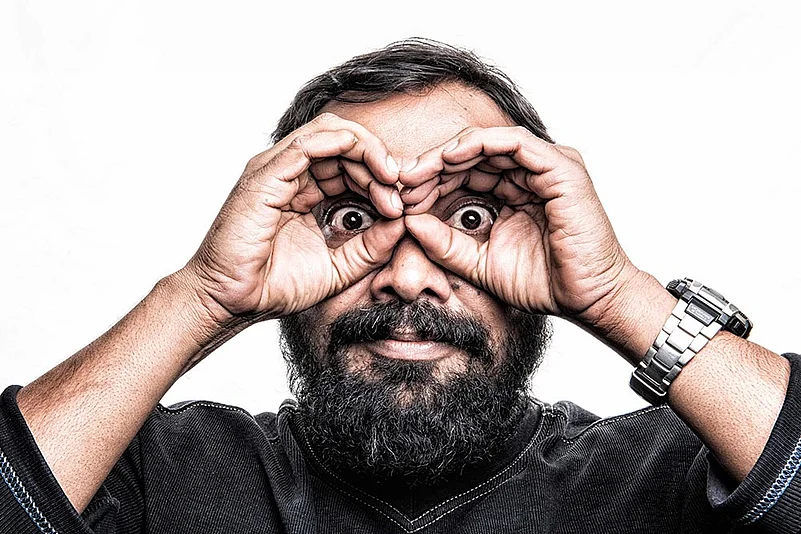As India turns 71 next week, Outlook zeroed in on 21 individuals who have made a lasting impression on this country – for both good and bad – so far in the 21 st century. And we got 21 equally important personalities to write on the 21 individuals we chose.
In this column, Bollywood actor Manoj Bajpayee writes on film director Anurag Kashyap.
We met through mutual friends before the making of Satya (1998). Ram Gopal Varma was not happy with the initial writer of the movie. When I came to know that he was looking for a replacement, I took Anurag to his office and introduced the two. Anurag had seen my play Netua and was familiar with my work. We subsequently did two more films together: Shool (1999) and Kaun (2000). We had hit it off instantly and would hang out with each other for hours every day, discussing various things, including cinema. Like they say—my house was his house in those days.
I was quite impressed with his knowledge and understanding of cinema at such a young age. He must have been in his mid-twenties then. He was a widely read man and had an amazing collection of books and movies. He had come up with a new kind of writing in Hindi cinema. Unfortunately, I lost him soon thereafter for many years because of a misunderstanding between us. I don’t know why but he somehow felt that I was not interested enough in his directorial debut project, the film Paanch. We drifted apart. I also did not try to clear the air and sort out the differences. We were both young and had our share of egos and attitude. We did not speak to each other for years and remained cut off from one another.
The thaw in our frozen relationship finally came in 2009 when I called him up to congratulate him after seeing Dev D. I have been a great admirer of his work. After Ram Gopal Varma, he is one filmmaker who has made the maximum impact on Indian cinema in the past 20 years.
Today, we understand each other better and share a healthy relationship, one of mutual respect, but we’re no longer close friends. Having said that, I’m available to him at all times. We have, after all, been witness to the highs and lows in our lives. We are open to criticism of each other’s work. We don’t feel bad about it and don’t expect to receive only praise from one another. To understand Anurag, one cannot separate the individual from his movies. He’s someone who calls a spade a spade. He will tell you in your face if he does not like something about you, which hurts people at times.
I worked with Anurag again on Gangs of Wasseypur in 2012. During the making of the film, I felt he had evolved more as a film maker. He actually went out of his way to help me in doing certain scenes in the film.
Many consider his films or, for that matter, his views, particularly on social media, as political, but I think they are more social than political. I am familiar with his viewpoints. He studied at Scindia—an expensive boarding school, but he remains grounded, always connected to his roots in Varanasi. As all the good movies should do, his movies reflect his deep understanding of the social realities of our times.
Still, I feel Anurag has a long way to go. He is looking for new grounds for optimal use of his creativity and talent. He has taken a break from writing for quite some time. I feel he has reached a stagnation of sorts as a writer for now, but once he resumes writing, I am sure he will usher in a big revolution as a filmmaker. The world will then see a new wave of Anurag Kashyap movies.
To read more columns on game-changers, click here
Manoj Bajpayee is an acclaimed Bollywood actor known for movies like Satya, Gangs of Wasseypur and Aligarh






















